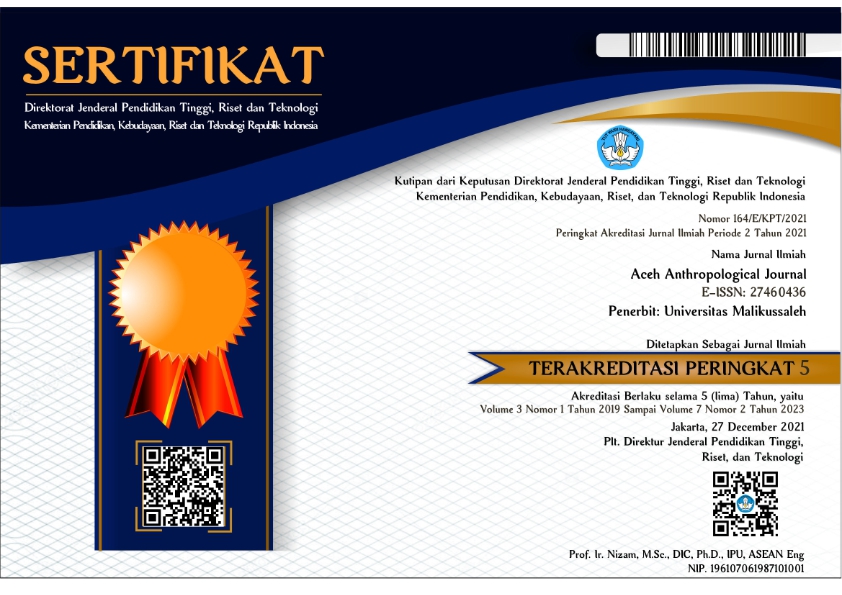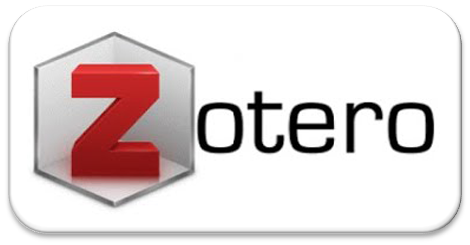Bank Sampah dan Budaya Menabung: Sebuah Refleksi dari PPM di Desa Marendal II
Abstract
Abstract: This paper discusses the socio-cultural implications (hidden values) that are expected to occur along with the construction of Bank Sampah (a waste bank) in a community by the local young generation (insiders) with the assistance of the LPPM-USU service team (outsiders). The data and information material for compiling this work were obtained from notes on these activities: providing assistance in establishing a Waste Bank together with a youth association called PERMADA in Dusun III, Desa Marindal II, Kabupaten Deli Serdang. This activity is carried out with a semi-participatory approach, with a processual paradigm, to overcome the problem of solid waste at the location of the activity. Garbage at the activity location has not been managed properly even though the local village already has a Village Regulation on waste management. The Waste Bank---along with other elements---which was introduced by the LPPM-USU is intended to invite residents to manage waste together, to build a clean culture. The socio-cultural implications of this activity, which participants are not necessarily aware of, are the growth of a culture of saving; one type of habit that is very important in managing wealth. Saving is closely related to the culture of saving and thrieft, collecting, and a culture that is oriented towards the future. However, it is these cultures that have not yet grown, which are still waiting for their presence as an empirical reality in the community through the assistance of the Waste Bank which continues to be carried out indefinitely.
Abstrak: Paper ini membicarakan implikasi sosial-budaya (nilai tersebunyi) yang diharapkan akan terjadi seiring pembangunan bank sampah di satu kominitas oleh generasi muda setempat (orang dalam) dengan dampingan tim pengabdian LPPM USU (orang luar). Data dan bahan informasi untuk menyusun karya ini diperoleh dari catatan atas kegiatan tersebut: melakukan pendampingan mendirikan Bank Sampah bersama-sama dengan perkumpulan remaja bernama PERMADA di Dusun III Desa Marindal II Kabupaten Deli Serdang. Kegiatan ini dilakukan dengan pendekatan semi-partisipatoris, dengan paradigma prosessual, untuk mengatasi masalah persampahan di lokasi kegiatan. Sampah di lokasi kegiatan selama ini belum dikelola secara baik walaupun desa setempat sudah memiliki Peraturan Desa tentang pengelolaan sampah. Bank Sampah ---beserta unsur-unsur lainnya--- yang diintroduksi oleh LPPM USU dimaksudkan untuk mengajak warga mengelola sampah bersama, membangun budaya bersih. Implikasi sosial-budaya dari kegiatan ini, yang belum tentu sangat disadari oleh partisipan, ialah penumbuhan budaya menabung; satu jenis kebiasaan yang sangat penting dalam mengelola kekayaan. Menabung sangat erat kaitannya dengan budaya menyimpan dan menghemat, mengumpul, serta budaya yang berorientasi ke depan. Namun budaya-budaya inilah yang belum tumbuh, yang masih ditunggu kehadirannya sebagai kenyataan empirik di masyarakat melalui pendampingan Bank Sampah yang terus dilakukan tanpa batas akhir.
Keywords
Full Text:
PDFReferences
Birx, H. J., 2010. 21st Century Anthropology A Reference Handbook Volume 1 & 2. California: Sage Publication.
Borofsky, R., 2019. AN ANTHROPOLOGY OF ANTHROPOLOGY. Kailua: Center for Public Anthropology.
Chambers, R., 1988. Pembangunan Desa Mulai Dari Belakang. Jakarta: LP3ES.
Chambers, R., 1996. Memahami Desa Secara Partisipatif. Yogyakarta: Kanisius.
Cheater, A., 1999. Power in Postmodern Era. In: The Anthropology of Power: Empowerment and Disempowerment in Changing Structure. London and New York: Routledge, pp. 1-12.
Ife, J. & Tesoreiro, F., 2008. Alternatif Pengembangan Masyarakat di Era Globalisasi ommunity Development. 3 ed. Yogyakarta: Pustaka Pelajar .
Jonathan Xavier Inda & Renato Rosaldo , 2002. Introduction to A World in Motion. In: The Anthropology of Globalization. Melden: Blackwell Publisher, pp. 1-36.
Kottak, C. P., 2015. Cultural Anthropology Appreciating Cultural Diversity. 16 ed.New York: McGraw-Hill Education.
Kurtz, D. V., 2001. Political Antropology Paradigms and Power. USA: Westview .
Marsden, D., 1994. Indigenous Management and the Management of Indigenous Knowledge. In: S. Wright, ed. Anthropology of Organizations . London and New York : Routledge, pp. 39-53.
Ostrom, E., 1992. Crafting Institution Self-Governing Irrigation System. San Francisco: Institute for Contemporary Studies Press.
Spradley, J. P., 1980. Participant Observation. USA: Holt, Rinehart and Winston.
Tandon, W. F. &. R., 1993. Pengantar Riset Sosial Untuk Tindakan Sosial . In: Riset Partisipatoris Riset Pembebasan. Jakarta: Gramedia Pustaka Utama, pp. xv-xxx.
VandenBroek, A., 2010. Agency and Practice Theory. In: 21st Century Anthropology: A Reference Handbook . California, London, Singapore: Sage Publications Ltd., pp. 480-487.
Zuska, F., 2008. Relasi Kuasa Antar Pelaku Dalam Kehidupan Sehari-Hari (Studi Kasus di Kancah Pengelolaan Sampah Kota). Medan : FISIP USU Press.
DOI: https://doi.org/10.29103/aaj.v6i2.7478
 Article Metrics
Article Metrics
 Abstract Views : 196 times
Abstract Views : 196 times
Refbacks
- There are currently no refbacks.
Copyright (c) 2022 Fikarwin Zuska, Evi Naria, Haris Martondi Hasibuan, Hadi Prasetyo
INDEXED BY:










Redaksi Aceh Anthropological Journal (AAJ): Gedung Program Studi Antropologi Fakultas Ilmu Sosial dan Ilmu Politik Universitas Malikussaleh. Kampus Bukit Indah Jln. Sumatera No.8, Kec. Muara Satu Kota Lhokseumawe, Prov. Aceh, Indonesia. eMail: aaj.antro@unimal.ac.id
All publication by Aceh Anthropological Journal (AAJ) are licensed under a Lisensi Creative Commons Atribusi 4.0 Internasional





.png)
.png)
.png)

